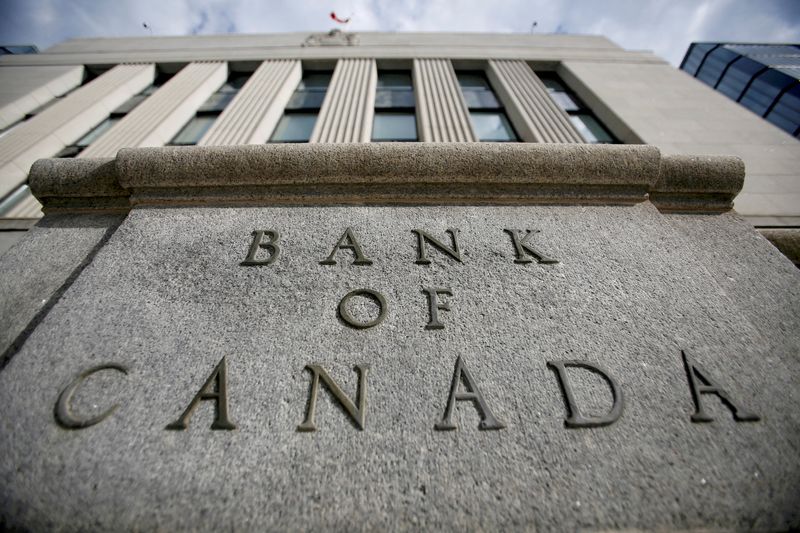By Steve Scherer and Ismail Shakil
OTTAWA (Reuters) -The Bank of Canada on Wednesday hiked its key overnight rate by a quarter of a percentage point to a 22-year high of 5.0%, and said it could raise rates further because of the risk of inflation stalling above its 2% target.
The move to increase borrowing costs by 25 basis points for the second time in as many months was expected by analysts and markets. After a five-month pause, the BoC raised its overnight rate in June, saying monetary policy was not sufficiently restrictive.
The BoC in its statement dropped the line saying rates were not restrictive enough, but revised higher its growth forecast for this year and pushed back by six months to mid-2025 its expectations for getting inflation to target.
"If new information suggests we need to do more, we are prepared to increase our policy rate further," BoC Governor Tiff Macklem told reporters after the decision. "But we don't want to do any more than we have to."
The BoC will base future policy decisions on the "assessment of incoming data and the outlook for inflation," Macklem said.
Canadian money markets increased bets for another rate increase after the move, seeing an almost 30% probability of another hike at the next policy announcement in September.
The members of the governing council "want to take a few rounds of data and they're leaving the door open for more (hikes) as needed in September," said Derek Holt, vice president of capital markets economics at Scotiabank. "I think they're just taking the summer off."
The Canadian dollar strengthened to a two-week high at 1.3144 per U.S. dollar, or 76.08 U.S. cents, before pulling back to 1.3180, up 0.4% on the day.
"Governing Council remains concerned that progress towards the 2% target could stall, jeopardizing the return to price stability," the BoC said in a statement.
Despite nine previous rate increases totaling 450 basis points since March of last year, the economy regained momentum in May, likely growing 0.4% on the month, after stalling in April.
Still, bond yields fell as data showed a slowdown in U.S. inflation and some economists were skeptical about another rate increase this year, including Royce Mendes, head of macro strategy at Desjardins Group.
"While the Bank of Canada didn't shut the door to more monetary tightening, Canadians might finally be seeing some light at the end of the rate-hiking tunnel," Mendes said.
The BoC raised its forecast for second-quarter annualized quarterly growth to 1.5% from 1.0% in April, and growth is seen expanding 1.5% also in the third quarter. Overall 2023 real gross domestic product growth is seen at 1.8% compared with its April forecast of 1.4%.
"The rebalancing of supply and demand is now expected to happen in early 2024," the BoC said in it its report containing new forecasts also released on Wednesday.
Though headline inflation slowed to 3.4% in May, less than half of last year's 8.1% peak, the three-month annualized rates of the BoC's core measures have not been coming down.
Surprisingly persistent demand, higher-than-expected housing costs and a more gradual decline than expected in goods prices, excluding food and energy, are fueling inflation, the BoC said.
"Inflation is expected to return to 2% in the middle of 2025, although the timing is uncertain given the gradual movement of inflation toward the target," the BoC said.

The BoC's overnight target rate was last at 5.00% in March and April of 2001.
Twenty of 24 economists surveyed by Reuters had expected the central bank to lift rates by a quarter of a percentage point. Money markets had seen a more than a 70% chance of a rate hike before the announcement.